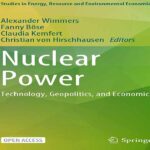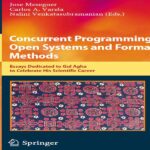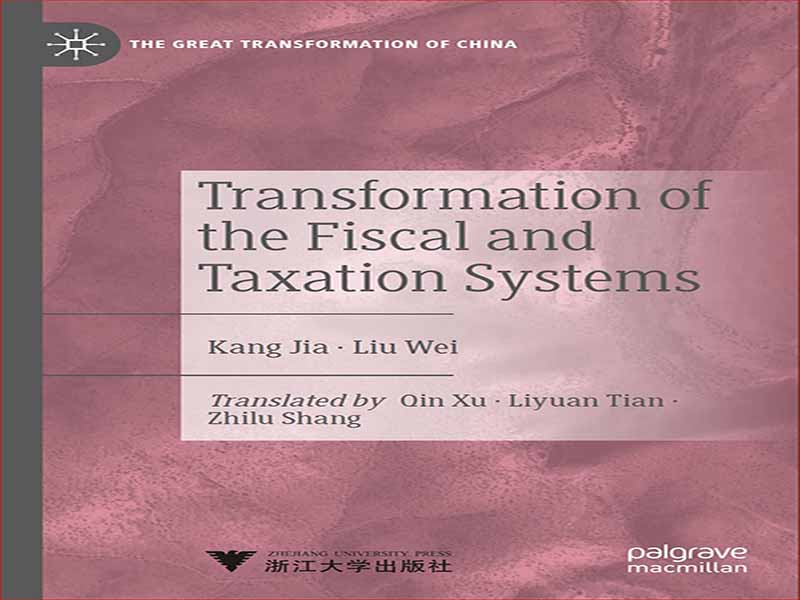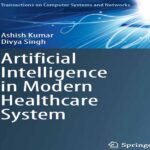- عنوان کتاب: Transformation of the Fiscal and Taxation Systems
- نویسنده: Kang-Jia,-Liu-Wei
- حوزه: مالیات
- سال انتشار: 2022
- تعداد صفحه: 395
- زبان اصلی: انگلیسی
- نوع فایل: pdf
- حجم فایل: 4.52 مگابایت
یک ملت بزرگ با 13 میلیارد نفر با وضعیتی در حال تغییر مواجه است که هزار سال است هرگز با آن مواجه نشده است. تغییر، دگرگونی و نوآوری ملودی اصلی آن دوران است. در این عصر یکپارچگی بالای رشد، دگرگونی و اصلاحات، «تحول بزرگ» دقیقاً همان چیزی است که سرنوشت چین را رقم میزند. به عبارت دیگر، نه تنها “دارایی های سمی” باقی مانده در سیستم سنتی باید به طور کامل حذف شوند، بلکه باید راه جدید برای رشد بیشتر به سرعت هموار شود و در عین حال نیروی محرکه جدید توسعه رها شود. تحول عمده در “برنامه پنج ساله سیزدهم” چین (FYP) از نظر تاریخی تعیین کننده است. با دگرگونی اقتصادی به عنوان نقطه کانونی، تحول اجتماعی و دگرگونی دولت هر دو در دوره حساس گذار هستند که در آن باید با مشکلات خاردار بیشماری مقابله کرد. قضاوت کلی ما این است که سال 2020 مانند “دره” است که باید از روی آن بپریم. به طور خاص، تا پایان سال 2020 فشار بر رشد کوتاه مدت را حذف کرده و مسیر توسعه اقتصادی را تغییر خواهیم داد و در عین حال به جامعه نسبتاً مرفهی به طور همه جانبه دست یابیم و به یکی از کشورهای پردرآمد در جهان تبدیل شویم. اگر به اندازه کافی خوب برنامه ریزی کنیم تا از سال 2020 بهترین استفاده را ببریم، دوره ای میان مدت در سیزدهمین سال مالی، می توانیم پایه محکمی برای رشد صلح آمیز و پایدار میان مدت تا بلندمدت ایجاد کنیم. اگر نتوانیم از فرصت تاریخی سال 2020 استفاده کنیم، ابتکار “تحول بزرگ” را از دست خواهیم داد و در نتیجه منجر به خطرات اقتصادی سیستماتیک متعدد می شود. پیشرفت قابل توجه برای دستیابی به تحول اقتصادی و ارتقاء در دوره سیزدهم FYP نحوه کنار آمدن با “چهار سه نفر” است. اول، سه گرایش عمده: یکی برای تحول صنعتی و ارتقاء از «ساخت چین» به «ساخت فکری در چین». یکی برای تحول شهری و ارتقاء از مقیاس به جمعیت. و یکی برای ارتقاء الگوی مصرف از ماده به سرویس. دوم، سه چالش عمده: یکی برای دستیابی به یک پیشرفت بزرگ در اصلاحات ساختاری از طریق افزایش تعدیل ساختاری با وجود رکود اقتصادی. یکی برای “سبقت از گوشه” با پاسخ به دور جدید جهانی انقلاب علمی و فناوری و افزایش توانایی نوآوری. و یکی برای یک اصلاح واقعی و زمینی. در حال حاضر، تحول بیشتر به پیشرفت همه جانبه در اصلاحات بستگی دارد. بدون تغییر در ساختار سیستماتیک به هیچ وجه نمیتوان به جلو رفت. و رشد فشار زیادی را متحمل خواهد شد. ثالثاً، سه هدف عمده: یکی برای صنعت، یعنی تشکیل ساختار صنعتی تحت سلطه خدمات از طریق تسریع روند خدمات در تولید. یکی برای یک نیروی محرکه اصلی، یعنی تشکیل یک الگوی جدید رشد اقتصادی مبتنی بر مصرف، که در آن مصرف، سرمایهگذاری را هدایت میکند و مصرف داخلی به نیروی اصلی محرک رشد اقتصادی تبدیل میشود. و یکی برای گشایش، یعنی تشکیل یک الگوی باز جدید که تحت سلطه تجارت خدمات است تا تجارت خدمات را در مقیاس دو برابر کند. در نهایت، سه رابطه اصلی که باید به درستی مدیریت شوند: یکی بین کوتاهمدت و میانمدت تا بلندمدت که در آن بهترین کار باید برای سال 2020 (دوره میانمدت) انجام شود و در عین حال تضادها را در کوتاهمدت حل کنیم، و خودمان را پایهگذاری کنیم. در میان مدت و درازمدت نگاه کردن. یکی بین سرعت و ساختار که مستلزم تسریع در تنظیم سازه و حفظ افزایش 7% یا بیشتر است. و یکی بین سیاست و سیستم که در آن کلید کسب مزیت سیاستی در دستیابی به نوآوری نهادی تحت فشار اقتصادی است.
A great nation with 13 billion people is facing a changing situation it has not ever faced for a thousand years. Change, transformation, and innovation feature the main melody of the era. In this era of high integration of growth, transformation, and reform, “great transformation” is exactly what decides the destiny of China. In other words, not only will “toxic assets” left in the traditional system have to be eliminated completely but also the new way for further growth needs to be paved quickly while letting loose the new motive force of development. The major transformation in China’s “13th Five-Year Plan” (FYP) is historically decisive. With the economic transformation as the focal point, both social transformation and government transformation are in the crucial period of transition in which innumerable thorny problems have to be tackled. Our general judgment is that the year 2020 is like a “gorge” we have to jump over. Specifically, by the end of 2020 we will have eliminated the pressure on short-term growth and changed the way for economic development while achieving a comparatively prosperous society in an all-round way and becoming one of the high-income countries in the world. If we plan well enough to make the best use of 2020, a mid-term period in the 13th FYP, we can lay a solid foundation for the medium-to-long-term peaceful and sustainable growth. If we fail to grasp the historical opportunity of 2020, we will lose the initiative of “great transformation”, thus resulting in multiple systemic economic risks. The significant breakthrough for achieving the economic transformation and upgrading in the 13th FYP period is how to cope with “four threes”. Firstly, three major trends: one for industrial transformation and upgrading from “made in China” to “intellectually made in China”; one for urbanized transformation and upgrading from scale to population; and one for consumption pattern upgrading from material to service. Secondly, three major challenges: one for achieving a major breakthrough in structural reform by enhancing the structural adjustment despite the economic downturn; one for “corner overtaking” by responding to the global new round of scientific and technological revolution and increasing the ability to innovate; and one for a real and down-to-earth reform. At present, the transformation depends more on the all-round breakthrough in reform. It couldn’t move forward at all without the change in systematic structure. And the growth would suffer big pressures. Thirdly, three major goals: one for industry, namely forming the service-dominated industrial structure by accelerating the process of service in manufacture; one for a major motive force, namely forming a consumption-oriented new pattern of economic growth, in which consumption guides investment and domestic consumption becomes a main force that spurs economic growth; and one for opening-up, namely forming a new open pattern dominated by service trade so as to redouble service trade in scale. Finally, three major relationships to be handled properly: one between the short term and the medium-to-long term in which the best job should be done for 2020 (the mid-term period) while resolving contradictions in the short term, basing ourselves on the mid-term and keeping our eyes on the long term; one between speed and structure which requires accelerating the structural adjustment while maintaining an increase by 7% or so; and one between policy and system in which the key is to gain a policy advantage in achieving institutional innovation under the economic pressure.
این کتاب را میتوانید از لینک زیر بصورت رایگان دانلود کنید:





































نظرات کاربران